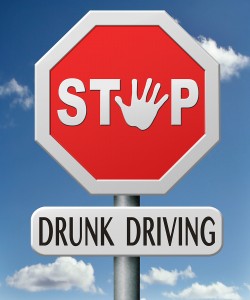As if getting slapped with a DUI is not bad enough, navigating the maze of legal stuff related to an impaired driving charge can be quite a nightmare. It is easy to become confused over the various fines and penalties, knowing what rights are applicable and how a DUI case should best be handled. One point of great confusion is the difference between a DUI (Driving Under the Influence), a DWI (Driving While Intoxicated), and a DWAI (Driving While Ability Impaired). DUI and DWI laws vary from state to state, but the following will help you gain a better understanding of the laws related to driving under the influence of a substance.

Under the Influence of What?
Nearly everyone has heard the term “driving under the influence,” but what does that really mean? There are many factors that influence every driver on the road, be it stress from work, the meal a person just ate, or excitement about an upcoming sporting event. However, from a legal standpoint, driving under the influence refers to driving after having consumed a substance likely to impair a person’s judgment or ability to act. While DUIs usually refer to alcohol use, they can also refer to the use of drugs that impair ability.
DUI, DWI, DWAI: Is There a Difference?
In all of the 50 United States, driving under the influence (DUI) refers to a blood alcohol concentration (BAC) of 0.08 or higher. For many states, DUI and DWI (driving while intoxicated) are essentially the same charge. Some states, however, have separate charges. In Maryland, for example, a DWI charge is far more serious than a DUI and has different fines and penalties attached to it (1). In California, there is only a DUI charge (2). The question of whether or not there is a difference in the two charges depends upon the state in which you receive the charge.
For the sake of this discussion, Colorado laws will be utilized.
DWAI – Driving While Ability is Impaired
In the state of Colorado, special provision is made for BAC less than the standard 0.08 that is common throughout the rest of the country. A DWAI charge carries lesser penalties than a DUI charge but still adds points to your driving record, which can lead to a suspension or revocation of driving privileges. According to Colorado law, DWAI involves a BAC of greater than 0.05 but less than 0.08 (3). According to the Colorado Revised Statutes (CRS) section 42-4-1307, the fines and penalties for a DWAI are as follows for a first time offense:
- 8 points on driving record
- Jail time of 2 – 180 days
- Fine of $200 – $500
- Public service of 24-48 hours

These are mandatory charges, with the exception of the jail time, which may be suspended if the offender agrees to undergo evaluation and a treatment program (4). Subsequent offenses have steeper fines and penalties.
DUI
A DUI offense in the state of Colorado is a serious matter. DUI charges may vary from state to state, but according to CRS section 42-4-1307, the following fines and penalties are applicable to first-time DUI offenders in Colorado:
- License suspension – 9 months
- 12 points on driving record
- Jail time of 5 days to 1 year
- Fine of $600 – $1,000
- Public service of 48-96 hours
As with the DWAI, prison time may be suspended at the discretion of the judge, depending on the offender’s participation in appropriate treatment evaluations and programs.
Jon Reiter works with Jeremy Rosenthal, a Denver DUI lawyer who has years of experience as a criminal defense attorney in Colorado. Rosenthal specializes in drinking and driving related charges, auto accident tickets, personal injury lawsuits and medical cannabis charges. Circle Rosenthal Law on Google+.


 12+ years sharing great legal advice
12+ years sharing great legal advice
